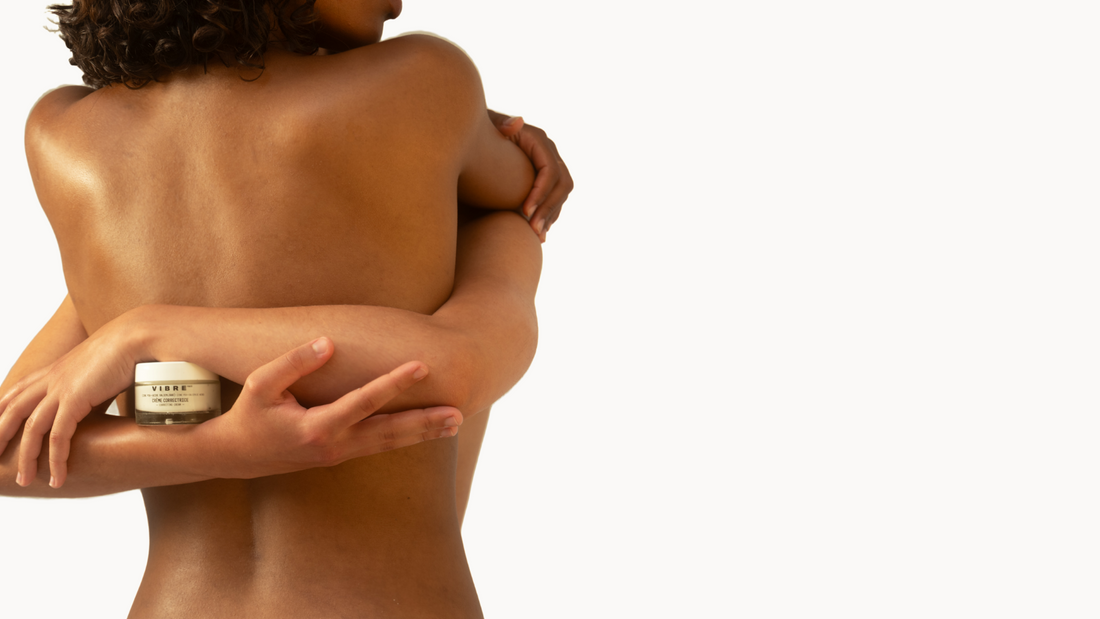
Sensitive skin routine: which skincare products to keep, which to eliminate?
Share
Sensitive skin is capricious. Redness, tingling, feelings of overheating... All it takes is one unsuitable ingredient or gesture to set off a chain reaction. If you recognize your skin in this description, it may be time to adopt a minimalist routine, designed to soothe, protect and strengthen your skin barrier. But what to keep? What to throw away? Here's a clear, accessible guide to lightening your bathroom... and soothing your skin.
Why adopt a minimalist routine when you have sensitive skin?
Fewer products mean fewer risks. Every care product, every ingredient is a variable that can upset your skin's already fragile balance. By reducing the number of products, you :
-
Minimize unwanted interactions,
-
Make it easy to identify triggers (in the event of a reaction),
-
Respect your skin's natural rhythm.
Minimalism is not a trend: for sensitive skin, it's often a necessity.
The basis of a minimalist routine for sensitive skin
Sensitive skin doesn't need 10 products. It needs 3 pillars:
1. Gentle cleaning
➡️ Recommended product: a gentle sulfate-free cleanser, physiological pH (approx. 5.5), fragrance- and alcohol-free.
✅ Why keep it on? Cleansing removes impurities, pollution particles and skincare residues, without stripping the skin barrier.
🚫 A void: aggressive foaming gels, exfoliating cleansers, cleansing brushes.
2. Moisturize and soothe
➡️ Recommended product: a minimalist, fragrance-free, non-comedogenic moisturizer with soothing agents such as glycerine, allantoin or centella asiatica.
✅ Why keep it? Moisturization maintains elasticity, limits tightness and supports skin regeneration.
🚫 A void: creams rich in trendy active ingredients (acids, retinol, essential oils), which can irritate.
3. Sun protection
➡️ Recommended product: a mineral sunscreen (zinc oxide or titanium dioxide), minimum SPF 30, without irritating chemical filters.
✅ Why keep it on? UV rays aggravate hypersensitivity, accentuate redness and damage the skin barrier.
🚫 To avoid: perfumed, alcohol-based sunscreens with controversial chemical filters (such as oxybenzone).

Products to be disposed of (temporarily or permanently)
When your skin reacts, the first thing to do is eliminate anything that isn't vital. Here's a list of products often poorly tolerated by sensitive skin:
❌ Multi-active serums
Some combine niacinamide, hyaluronic acid, retinol, peptides... too many active ingredients = too much stress for reactive skin.
❌ "Coup d'éclat" or "detox" masks
They often contain perfumes, essential oils or clays that are too drying.
❌ Alcoholic tonic lotions
Even if they promise to "tighten pores" or "refresh", they can disrupt pH levels and dry out the skin.
Ingredients friendly to sensitive skin
If you want to get straight to the point, look for skincare products containing soothing, moisturizing and repairing active ingredients. Here are a few examples:
-
Plant glycerin: deeply moisturizes and retains water.
-
Panthenol (provitamin B5): calms inflammation.
-
Allantoin: softens and regenerates.
-
Centella Asiatica: repairs and soothes redness.
-
Niacinamide (≤ 5%): anti-inflammatory, strengthens the skin barrier.
-
Squalane: gentle emollient, perfect for restoring the hydrolipidic film.
What does a practical minimalist routine look like?
🕊️ Morning
-
Gentle cleansing with lukewarm water (or not at all if your skin is very dry).
-
Light, fragrance-free moisturizing cream.
-
Mineral sunscreen.
🌙 Evening
-
Cleansing (if necessary) with a gentle fragrance-free oil and mild cleanser
-
Moisturizing or repair cream.
How do you reintroduce products gradually?
Once your skin is soothed, you can consider adding one product at a time, spaced several days apart, observing skin reactions (tightness, small spots, redness...).
🧪 "low & slow" method:
-
Introduce a single asset.
-
Apply once every 2-3 days for the first week.
-
If your skin tolerates it well, gently increase the frequency.

What dermatologists say: back to basics
Experts agree: the key to sensitive skin is regularity + simplicity. According to a study published in the Journal of Dermatological Science, over 60% of sensitive skin reacts to an excess of products or active ingredients. By simplifying your routine, you improve :
-
Skin tolerance,
-
The barrier function,
-
Everyday comfort.
Conclusion: make peace with your skin, one treatment at a time
Sensitive skin doesn't need over-stimulation, but listening and consistency. A minimalist routine, far from being a deprivation, is an act of respect towards your skin. It's also the best way to restore comfort, radiance and confidence.
